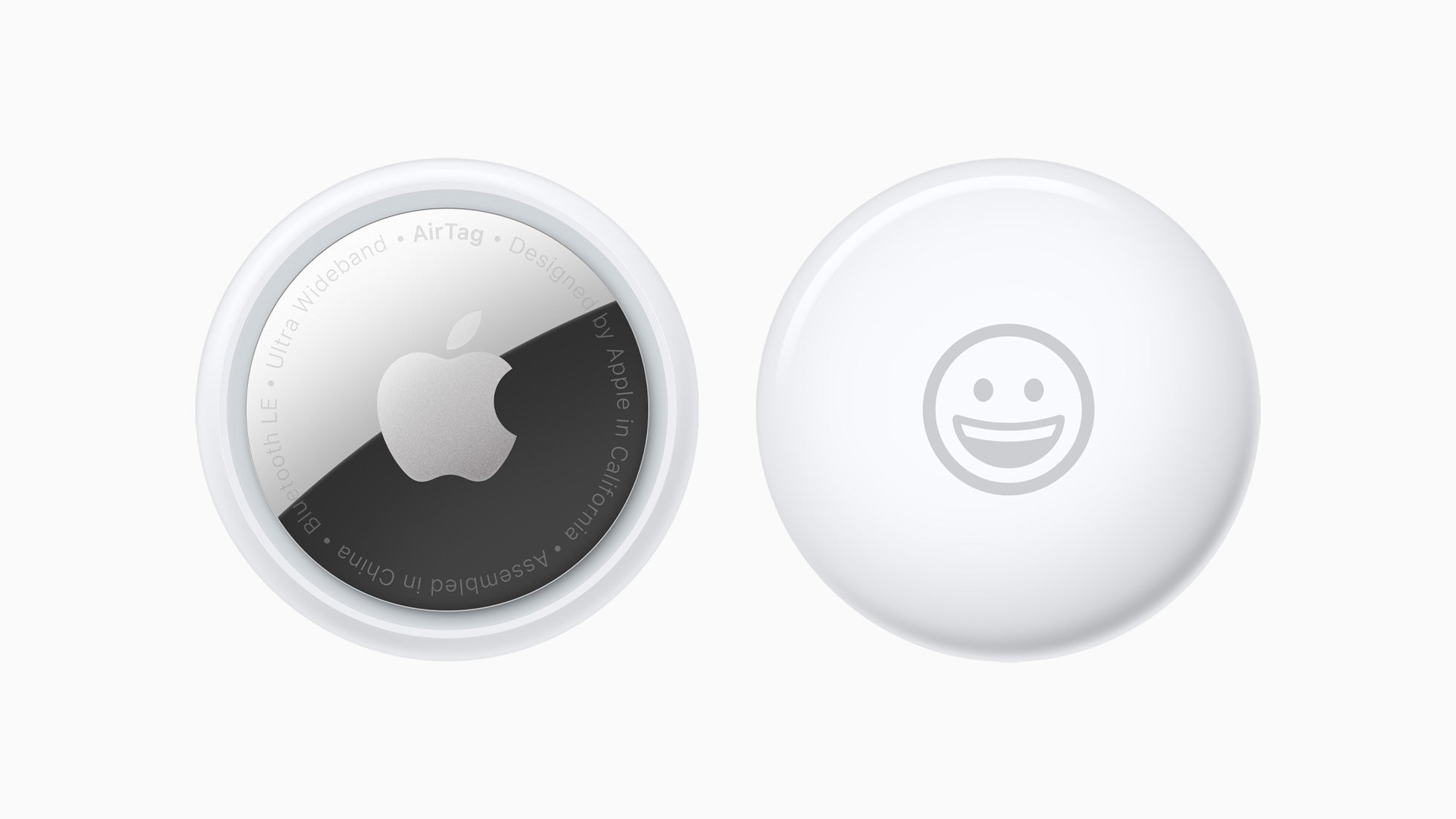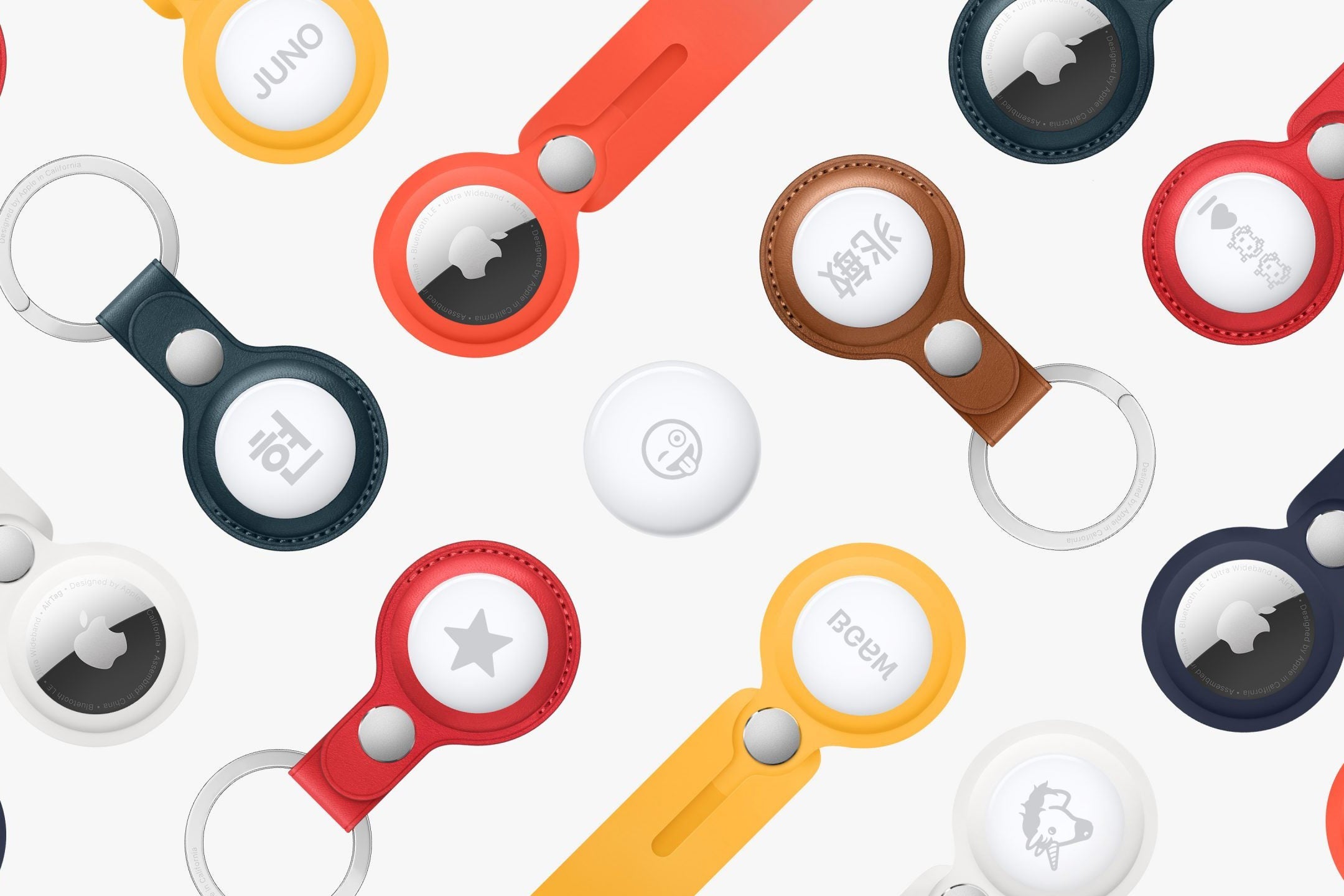Apple wants to make sure you never lose track of your luggage again
Move over, iPhone: Apple's hottest new gadget is ... a tracking device.
Called AirTag, Apple unveiled the predictably sleek accessory during its first product launch event of the year on Tuesday. The coin-size tracker leverages the company's Find My network so you can locate any lost item from your computer, phone or tablet.
The travel implications are obvious, of course — especially because of Apple's collaboration with Hermès on a series of high-end leather luggage tags, bag charms and key rings. But you don't need to drop $450 on a designer accessory to use an AirTag to keep track of your belongings the next time you hit the road.
For travelers familiar with Bluetooth tracking devices such as Tile or Samsung's new SmartTag, many of AirTag's capabilities will be familiar. And for travelers who are already invested in Apple's ecosystem, the AirTag will probably feel like a seamless (and surprisingly affordable) way to make sure you never lose track of your valuables on your next trip.
You can attach an AirTag to a suitcase or backpack. You can loop it onto your keys or secure it to your passport holder. Basically, if you can lose it, you can track it using AirTag.
If you're in Bluetooth range — say, you're trying to find your passport around your house — you could use the Find My app to navigate directly there with sounds, haptic cues and specific directions.
Once you're out of Bluetooth range, any one of the billion Apple devices in the Find My network can pick up a signal from the lost AirTag and privately relay the information back to you.
I'll be the first to admit, I have a habit of misplacing things. And the problem definitely worsened after spending so much time inside during the pandemic. After all, it's hard to lose your wallet or keys when, well, you don't leave the house.
But on one of my first trips after sheltering in place for months, my wallet immediately evaporated (seriously — poof!) the moment I walked out of my apartment on the way to the airport. I had no way of knowing if I'd forgotten it at home, left it in the Lyft or dropped it on the sidewalk.

If I'd had an AirTag attached to my wallet tucked inside, I could have leveraged the Find My network to, at least, determine its location. And I could have quickly assessed whether the wallet was misplaced or stolen.
It's easy to imagine tucking one of these little devices into your suitcase and never again having to wait with bated breath to see if your suitcase emerges on the carousel at baggage claim. All you'd have to do is open your Find My app and see whether your suitcase was just on the other side of the conveyer belt or if it was stranded at the airport where you made a quick connection.

There are other features that make AirTag appealing to Apple users, too. Put an AirTag in Lost Mode, and you can be notified when it's detected or in range. And when you order an AirTag from Apple, you can get it engraved for free with text or an emoji (note to Apple: add travel-themed emojis).
So, should you add an AirTag to your lineup of travel accessories? You'll need to have an Apple device already to pair and set up the AirTag. But the competitively priced tracker ($29 for one, $99 for a pack of four) could be a smart way to keep tabs on your belongings the next time you travel.
AirTags are now available on preorder and will become available on Friday, April 30. Even though a single AirTag will only set you back about $30, you should still check if the item is eligible for bonus miles through a shopping portal before making your purchase. Last month, a few major airlines were offering 4x on purchases made through Apple.com.
TPG featured card
at Capital One's secure site
Terms & restrictions apply. See rates & fees.
| 5X miles | Earn 5X miles on hotels, vacation rentals and rental cars booked through Capital One Travel |
| 2X miles | Earn unlimited 2X miles on every purchase, every day |
Pros
- Stellar welcome offer of 75,000 miles after spending $4,000 on purchases in the first three months from account opening. Plus, a $250 Capital One Travel credit to use in your first cardholder year upon account opening.
- You'll earn 2 miles per dollar on every purchase, which means you won't have to worry about memorizing bonus categories
- Rewards are versatile and can be redeemed for a statement credit or transferred to Capital One’s transfer partners
Cons
- Highest bonus-earning categories only on travel booked via Capital One Travel
- LIMITED-TIME OFFER: Enjoy $250 to use on Capital One Travel in your first cardholder year, plus earn 75,000 bonus miles once you spend $4,000 on purchases within the first 3 months from account opening - that’s equal to $1,000 in travel
- Earn unlimited 2X miles on every purchase, every day
- Earn 5X miles on hotels, vacation rentals and rental cars booked through Capital One Travel
- Miles won't expire for the life of the account and there's no limit to how many you can earn
- Receive up to a $120 credit for Global Entry or TSA PreCheck®
- Use your miles to get reimbursed for any travel purchase—or redeem by booking a trip through Capital One Travel
- Enjoy a $50 experience credit and other premium benefits with every hotel and vacation rental booked from the Lifestyle Collection
- Transfer your miles to your choice of 15+ travel loyalty programs
- Top rated mobile app


